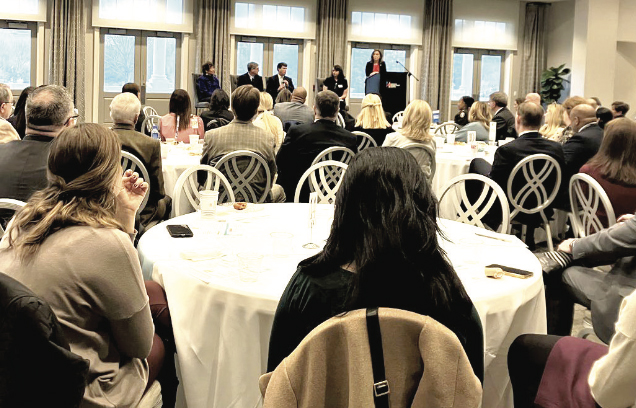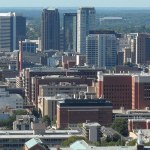By Lee Roop
The leader of the Huntsville Hospital system, north Alabama’s largest healthcare provider, expects another attempt to expand Medicaid coverage in the Legislature this year. And he has a question for business leaders who oppose it.
“When I talk to business leaders that are opposed to Medicaid expansion, I ask, ‘Why do you want to pay for this instead of letting the federal government pay for it?’” Jeff Samz told the Huntsville-Madison County Chamber Thursday. “I think it’s a better way to do it.”
Gov. Kay Ivey and conservative lawmakers disagree. They are skeptical or openly oppose expansion fearing federal subsidies will fade away leaving states on the hook for the federal share. With expansion, Washington would pay 90 percent of the cost with the state providing 10 percent. Estimates say 340,000 people in Alabama would gain access to Medicaid if the state accepts the federal funding to expand the program.
Samz said his 12-facility hospital system spends between $112-$115 million a year on uncompensated care. “That’s our cost of providing that care,” Samz said. “That’s not the charge.”
There are two ways to pay for it, Samz said. One is a property tax for the purpose but Samz said he’s glad Madison County doesn’t have one. “Most of you, you’re paying for it,” Samz told the business audience. “That’s the way that works. I have to negotiate a higher rate with Blue Cross to make sure I can cover the $100 million and still have enough margin for facilities and everything.
“This is how hospitals across the country do this,” Samz said. “It’s not a Huntsville Hospital thing. The industry, we call it cost shift. It’s the kind of thing we don’t talk about, but I thought we might as well go ahead and talk about it.”
Medicaid expansion would cover people up to 138 percent of the federal poverty level, Samz said. “The vast majority of people who would be covered by this are the working poor who have a job,” he said. “They’re paying taxes. They’re contributing to society but they can’t afford to get health insurance.”
Samz acknowledged that Medicaid is already “crazy expensive.”
“The Medicaid budget is the largest item in the Alabama General Fund,” Samz said. “It’s $800 million a year. Expansion is another $200 million. So to make light of it when it’s a $200 million ongoing expense for the state, those cost discussions have to be taken very seriously. I understand why state legislatures are reticent to add something that costs $200 million. You can’t take that lightly.”
On the other hand, Samz said, research by the Public Affairs Research Council of Alabama (PARCA), a nonprofit study group, “indicates that over the next five years, the savings from expansion and incentives more than covered the costs.”
Samz said he hopes the state can set the politics of expanding a federal program aside and focus on the numbers. “If we can have a conversation about it, and I think there’s an opportunity to do that, I think it would be great for the state and our community,” he said.
And if you own a private company, Sams told the chamber audience, “It means I have to negotiate less for Blue Cross to pay for the uncompensated care and it takes pressure off your premiums.”











